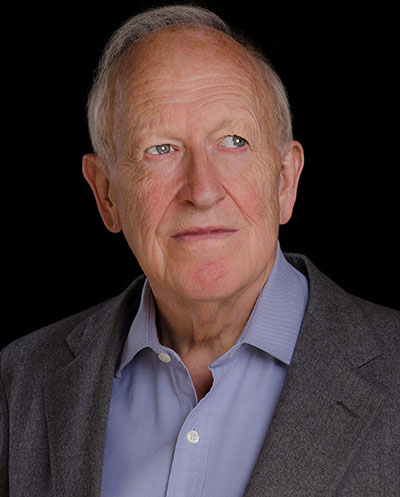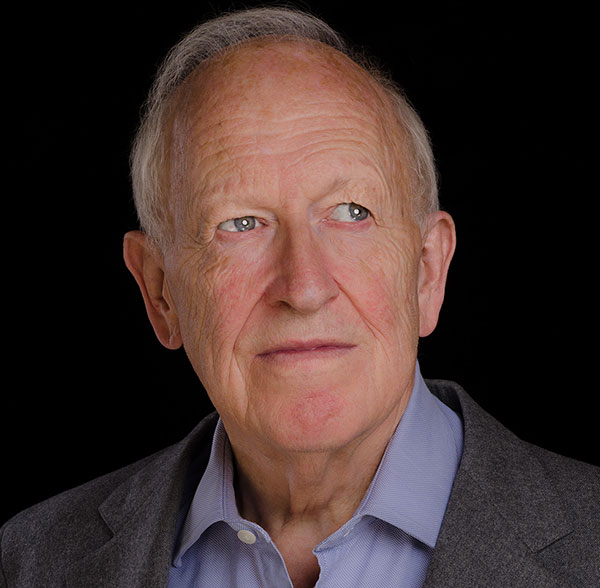Poetry
Robert Graves wrote in 1968: ‘I like Seán’s poems: clean, accurate and no nonsense – they still have the original poetic nap on them. They make sense, which is rare these days.’
Martin Seymour-Smith in his Guide to Modern World Literature (1986) wrote: ‘His early poems…are imaginative and always intelligent… In later poems he has at last allowed himself to be overtly satirical (something he had previously forbidden) and to express his sense of evil. But he has sacrificed none of his lyricism. The recent poems, more dramatic than the earlier ones, are often impressive and moving.’
Robert Nye wrote in The Times in 1993: ‘He can be sure of his place among the English poets.’
Desire in Belfast (1992): Sheila O’Hagan, Poetry Ireland Review: In Haldane, poet and environment are so locked they behave as one. If the seas crash and toss, so do the lovers… His is a new and exciting version of the pathetic fallacy…. Haldane relates to the natural world as if its impulses were his own…. But nowhere are lovers more emphatically entwined with the natural world than in the vivid and powerful ‘Baie des Chaleurs’…where the poet addresses his love as though she were the very sea itself.
Derek Mahon, The Irish Times: The poems are finally sui generis, a product of no school, a solitary updating of a Herrick-like delight in sexual love (the young lovers are not ‘ashamed of themselves’) overlaid with a hint of satire…The volume can be recommended for its wit and formal grace.’
Always Two (2009): David Cameron, Poetry Ireland Review: An anthology of great poetry descriptive of love’s long middle part would be pocketbook-size. But this is where Haldane excels… If Haldane is not a ‘love poet’ in any limiting sense, one quality he does share with such poets through the ages is a ravishing lyrical power… As astonishingly varied as Haldane’s poems undoubtedly are, they display specific characteristics, a consistent voice, which mark them out as written by Seán Haldane and no other.
Helena Nelson, Dark Horse: Reading through Haldane’s volume is an extraordinary experience, not unlike walking very close to a waterfall. Things sparkle and flash on all sides: one becomes mesmerised and fascinated by the energy, the force of the flow…I am not sure whether Haldane’s other existence in neuropsychology has to do with it, but there is often the sense of a mind watching itself with the reader invited into the brain. It is eerie and intense.
Reviews of The Devil’s Making (novel, 2013)
Sarah Weinman. National Post (Canada): Haldane makes the reader feel as if they’ve been dropped into the daily lives of those living in 1869-era Victoria, and refuses to shy away from the truth in favour of a more politically correct approach to historical fiction.
Ottawa Review of Books: In what is truly an extraordinary narrative of 19th century detective work, Sean Haldane has demonstrated his exemplary writing skills.
Kirkus Reviews (USA): Haldane’s first mystery, evocative and elegantly written, is a deeply philosophical look at a relatively unknown historical period.
Publishers Weekly (USA): An enthralling read.
Library Journal (USA): Haldane never shies away from period-specific language and attitudes, which make readers feel as though they are walking the dirty streets of Victoria by his side. Historical whodunit fans will relish this exciting trip to 19th century frontier Canada.
Booklist (USA): This winner of the 2014 Arthur Ellis Award is a good match for readers who relish suspense drawn out at a leisurely pace, lavish details of Pacific Northwest Coast Indian life, and the particular edginess of unreliable narrators.
Reviews of An Evil Tale I Heard (novel, 2022)
Ian Thomas Shaw. The Ottawa Review of Books: What carries the novel is not only the excellent prose and the page-turning suspense, but also the extensive historical research that Haldane, who worked in PEI [Prince Edward Island] for several years, has done to recreate the island’s society in the run-up to its entry into Confederation.

